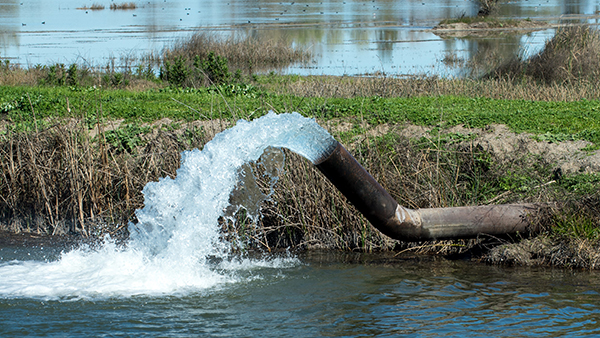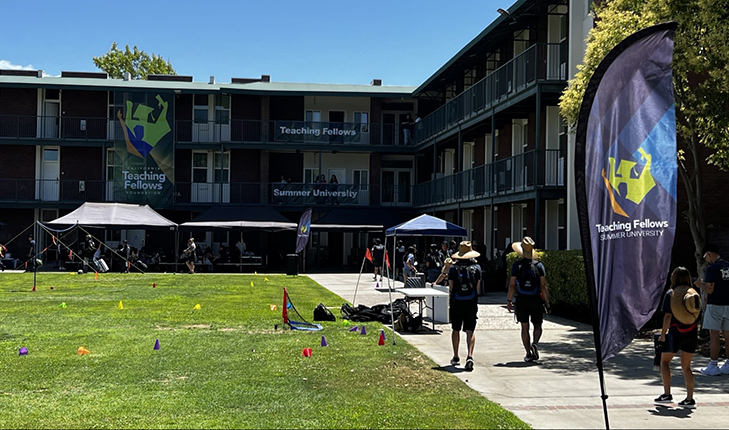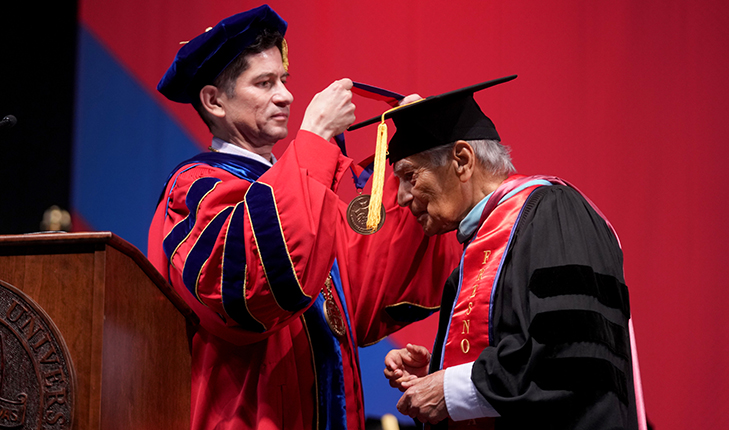The California Water Institute astatine Fresno State announces its archetypal ceremonial concern with Sustainable Conservation connected a $498,423 grant-funded task from the California Department of Food and Agriculture aimed astatine enhancing aquifer replenishment successful the San Joaquin Valley.
“The California Water Institute has engaged successful respective activities with Sustainable Conservation successful the past, but this collaboration marks a important improvement of our partnership,” said Laura Ramos, interim manager for California Water Institute’s Research and Education Division. “We are looking guardant to strengthening our narration done this grant.”
Sustainable Conservation, a nonprofit enactment focused connected solving California’s land, air, and h2o challenges, and the California Water Institute volition instrumentality six on-farm recharge pilots specifically successful pistachio orchards to survey nitrate leaching, ungraded wellness and function, and harvest yield.
Dr. Sangeeta Bansal, adjunct prof of ungraded wellness astatine Fresno State and co-principal researcher of the project, volition survey the effects of screen crops connected ungraded wellness and the outcomes of on-farm recharge including nutrient cycling and ungraded hydraulic function.
As California faces expanding clime variability, the request for innovative h2o absorption strategies is much pressing than ever. On-farm recharge, oregon the exertion of aboveground h2o to workplace fields to recharge aquifers, emerged arsenic a promising solution, providing growers an accidental to lend to groundwater replenishment, cultivation sustainability and assemblage health. However, this instrumentality indispensable beryllium deployed successful the close places, connected the close land, and astatine the close times to support harvest wellness and groundwater quality.
“During the wintertime of 2023, farmers proactively flooded their dormant fields to mitigate flood impacts and recharge aquifers. However, determination is overmuch much to larn astir the interactions betwixt recharge, screen cropping, and resulting h2o quality,” Ramos said. “The California Water Institute is anxious to collaborate with Sustainable Conservation and Dr. Bansal to supply the indispensable technological insights for aboriginal initiatives.”
This inaugural aims to beryllium a cardinal portion of enhancing the semipermanent sustainability of the region’s specialty harvest industry, said Sarah Castle, elder idiosyncratic for Sustainable Conservation. By replenishing underground h2o “savings accounts,” on-farm recharge helps unafraid a reliable h2o proviso for the San Joaquin Valley, adjacent successful the look of expanding clime volatility. Furthermore, she said recharge tin boost h2o prime and ungraded wellness to equilibrium sustainable h2o absorption and cultivation productivity for the payment of the region’s economical and biology resilience.
“This backing will allow america to further our corporate cognition astir on-farm recharge’s imaginable arsenic a sustainable h2o absorption tool,” Castle said. “With insights from these aviator projects, we anticipation to amended recognize however screen cropping and recharge tin support California’s h2o quality, boost agricultural resilience for California’s specialty crops, and foster biology sustainability.”






